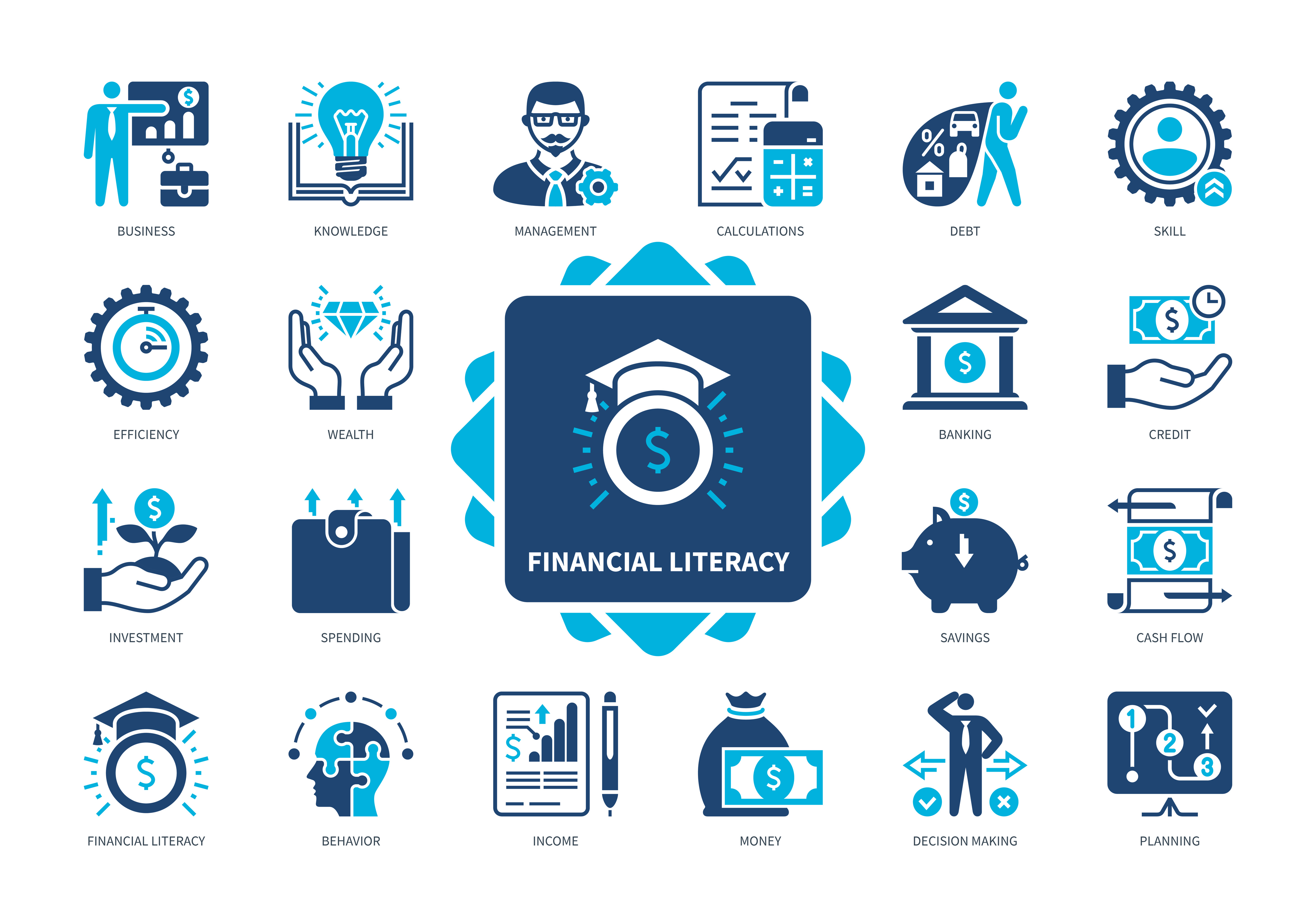Physicians devote years to mastering their craft but often graduate with limited knowledge of personal finance, making them vulnerable to poor financial decisions. Heavy student debt and a lack of financial education create a perfect breeding ground for stress, burnout, and even career dissatisfaction. Therefore, it is not surprising that many doctors struggle with budgeting, debt management, and investing—all while managing the demands of a high-pressure career.
The result? Increasing financial anxiety and a disproportionate focus on high-paying specialties rather than the primary care roles they might have otherwise pursued. Are you wondering how to be rich as a doctor? Read below!
The Financial Literacy Gap in Medical Education
Despite the growing recognition of financial stress as a major contributor to physician burnout, most medical education programs do not include personal finance education. This oversight leaves graduates ill-equipped to handle critical decisions about credit care, retirement planning, and health insurance for doctors, not to mention day-to-day budgeting. Despite the demand for financial knowledge among trainees, most institutions have not yet embraced structured financial education.
Many existing financial programs are often run by industry professionals, such as financial advisors or insurance agents, who may not always have the best interests of physicians in mind. Trainees have voiced concerns about the biases and sales-driven agendas of these professionals, preferring to learn from unbiased educators with no conflict of interest.

Financial Education That Every Physician Needs
Physicians encounter unique financial challenges, including managing significant student loans, negotiating contracts, and planning for retirement. To navigate these hurdles successfully, financial literacy for physicians is essential.
Key areas of focus should include:
- Debt Management: Strategies for handling medical school loans and high-interest debt.
- Budgeting and Saving: Creating a budget during training and the early stages of their careers.
- Investing and Insurance: Understanding how to invest wisely and secure appropriate health insurance for doctors coverage.
- Retirement and Estate Planning: Planning for the long term, especially given physicians’ unique financial trajectories.
This foundational financial education is not just helpful—it is necessary to ensure long-term success and well-being for healthcare professionals. Institutions must prioritize delivering unbiased, comprehensive financial education to equip physicians with these essential life skills.
The Benefits of Financial Literacy for Doctors – How to Be Rich as a Doctor
When physicians are empowered with financial knowledge, they can better manage their debt, invest wisely, and plan for the future. This reduces financial anxiety, allowing them to focus on what matters most: patient care and professional development. For many physicians, gaining control over their finances leads to an improved quality of life and greater career satisfaction.
More importantly, financial literacy for doctors helps prevent burnout. The stress of managing large amounts of debt or navigating financial decisions without adequate knowledge can contribute to exhaustion and dissatisfaction in the profession. Financially educated physicians are more likely to make choices that align with their personal values, such as choosing to work in primary care or underserved areas, rather than being driven solely by financial considerations and finding out how to be rich as a doctor.

Overcoming Challenges in Implementing Financial Education
One of the biggest challenges in providing financial literacy for doctors is finding qualified, unbiased instructors. Many financial literacy programs rely on industry professionals, which can introduce conflicts of interest. Physicians prefer to learn from experts with no financial stake in the outcomes. To address this issue, institutions may adopt a “train-the-trainer” approach, where knowledgeable physicians teach their peers about personal finance.
Additionally, while initial studies show that financial literacy programs increase knowledge and confidence, more research is needed to understand the long-term impact of such education on physician well-being and decision-making. Evaluating the effectiveness of different teaching methods, such as online courses versus in-person workshops, will also help institutions develop the most effective financial education programs.
Looking Forward: Financial Education as a Wellness Strategy
As the healthcare field becomes increasingly aware of the importance of physician wellness, personal finance education should be a key component of that strategy. Financial well-being is closely tied to overall well-being, and helping physicians manage their money reduces stress, enhances career satisfaction, and contributes to a healthier work-life balance. Resident financial planning is very important as starting early can help you build your wealth over time.
Financial literacy education is more than just a practical necessity—it is an investment in the long-term success and mental health of healthcare professionals. As more institutions recognize this need, the hope is that future generations of physicians will be better equipped to navigate the financial challenges that accompany their careers, allowing them to focus on what they do best: providing excellent care to patients.
Read more about financial planning and about how to be rich as a doctor here! Financial literacy for doctors is as important as financial planning!
Source: National Library of Medicine https://www.ncbi.nlm.nih.gov/pmc/articles/PMC9806052/

